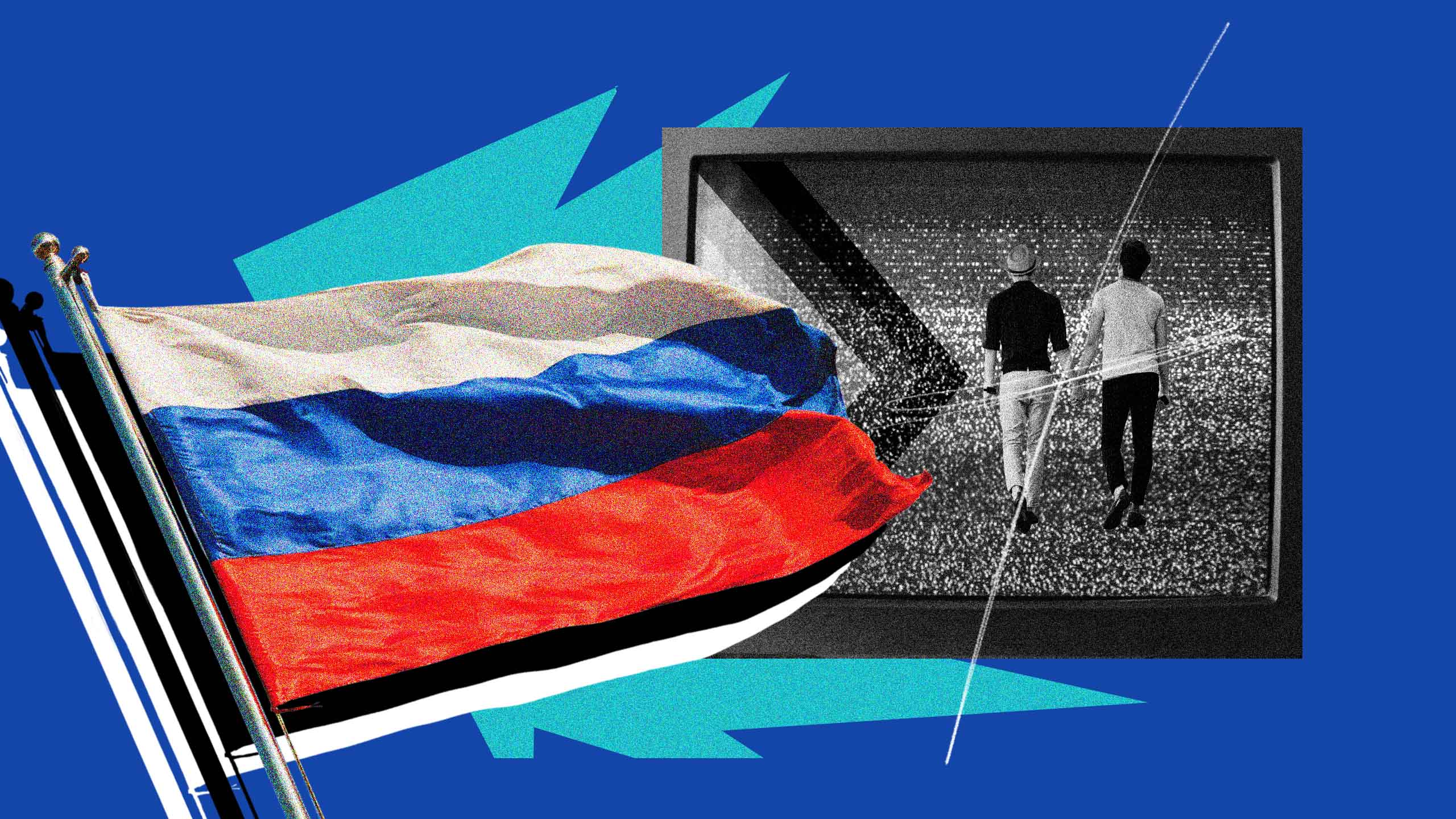A bill criminalizing any public act or mention of homosexuality has passed its third and final reading in Russia’s parliament, and is expected to be signed into law by President Vladimir Putin in the next few days.
An extension of the country’s infamous “propaganda” law, which was enacted in 2013 and banned the spread of information on “non-traditional sexual relationships” to minors, the law will ban public displays of same-sex relationships and criminalize the depiction of such in content aimed at people of all ages, including film, advertising and online media.
The punishment for breaking the new law includes a fine of up to 400,000 rubles (around CAD $8,940) for Russians and up to 15 days’ arrest and expulsion from the country for foreigners. Organizations that break the law can be fined up to 5 million rubles (around CAD $111,552) for “propagandizing non-traditional sexual relations,” according to The Guardian.
Though the new law has yet to go into effect, it has already begun to impact the country’s LGBTQ+ community. Last Friday, Acceptance—a support centre for queer and trans Russians in the southern Russian city of Kazan—announced it would cease operations in light of the prospective legislation.
“In connection with the new law on the complete ban on LGBTQ+ ‘propaganda,’ Acceptance is suspending its activities,” the group wrote on its official Instagram page. “The VK website and support group are being closed. Open support groups for queer people in Kazan are being suspended.”
This shutdown of vital resources for LGBTQ+ Russians under the Kremlin’s current leadership is not new. Earlier this year, Russia’s largest LGBTQ+ rights group, the Russian LGBT Network, was shut down by the government following a lawsuit in which a representative of the country’s Justice Ministry accused the charity and its parent organization, the Charitable Sphere Foundation, of illegally carrying out political activities and spreading so-called “LGBT views.”
“No Russian law prohibits the activity of organizations that ‘do not correspond’ to any values,” Igor Kochetkov, the head of the Russian LGBT Network, wrote in a Facebook post following the decision. “There is simply no such basis in the law for the liquidation of NGOs. In this sense, the decision of the court is iconic—mandatory state ideology has returned. It is now official.”
In 2017, Russia’s Centre for Independent Social Research reported a twofold increase in hate crimes against the community since the passing of this child propaganda law in 2013. This number is expected to continue to increase amid a series of anti-LGBTQ+ developments, including last year’s ban on same-sex marriage and trans adoptions and, more bizzarely, a 2017 law that banned trans Russians from driving. The country’s notoriously poor record on LGBTQ+ rights ranks 46th among the 49 countries featured in Rainbow Europe’s annual review of equality across the continent.
The Russian government has also come under fire this year for the detention and subsequent sentencing of openly queer Black WNBA star Brittney Griner, who has been held in the country since February of this year. Griner, who was arrested for possessing two cartridges of cannabis oil, has been sentenced to nine years in prison—though she could potentially be freed sooner if the U.S. and Russia agree to a prisoner swap.
Kremlin leadership has increased its efforts to promote “traditional values” since their invasion of Ukraine earlier this year, with President Putin accusing the West of “moving toward open Satanism,” thanks to LGBTQ+ rights across Europe, The Guardian reports. Senior lawmaker Alexander Khinshtein, who helped draft the bill, has also cited the war in Ukraine as a reason for the bill’s “new relevance.”
“The special military operation takes place not only on the battlefield, but also in the minds and souls of people,” he said.


 Why you can trust Xtra
Why you can trust Xtra


